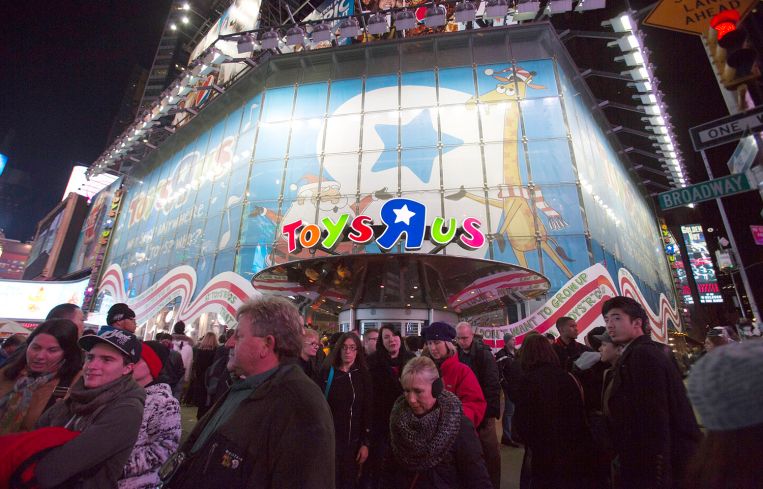National Retailers Flee Manhattan, Expand in Outer Boroughs
By Rebecca Baird-Remba December 19, 2018 6:24 pm
reprints
The number of national chain stores has declined in New York City for the first time in 11 years, and big retailers fleeing Manhattan are largely to blame, according to a new report from the Center for an Urban Future.
Chain store locations slid 0.3 percent citywide and 2.3 percent in Manhattan, with 124 retailers shutting down stores in the five boroughs in 2018.
However, big retailers prospered in the other four boroughs, with Staten Island accounting for the biggest growth in chain stores (3.2 percent), followed by the Bronx (2 percent). Both boroughs have been under-retailed for decades, and national chains are finally starting to realize that both places are untapped markets, said Jonathan Bowles, the executive director of the think tank and co-author of the report.
“It took a while for national retailers to realize the Bronx had changed and it was worth opening up there,” he explained to Commercial Observer. “In Staten Island the growth this year was the biggest in a while,” he said, largely thanks to the expansion of the Staten Island Mall and the construction of a few new mall projects. Bowles noted that while apparel and shoes declined elsewhere, Zara, Skechers and Mandee all opened stores there in 2018.
The shuttering of apparel, shoe and accessories retailers—which have been particularly hard-hit by the rise of e-commerce—is largely driving the downward trend in Manhattan, Bowles said.
BCBG Max Azria, Club Monaco, Aeropostale, True Religion, Bolton’s and Sunglass Hut each shuttered several locations apiece. A record 18 retailers closed all of their New York City stores, including Crumbs Bake Shop, Aerosoles, Nine West, David Barton Gym, Radio Shack, Quiznos and Toys “R” Us.
Subway downsized more than any other corporate chain, closing 103 stores, followed by Family Dollar, which shut down 18 locations, Staples, which closed nine stores, and McDonalds and Sunglass Hut, which each shuttered eight storefronts.
Sandwich chains shrunk their footprints overall, and ice cream and frozen yogurt shops were hard-hit as well. Potbelly, Panera Bread and Au Bon Pain each lost some stores, along with Cosi and Hale and Hearty. The chains 16 Handles, Ben & Jerry’s and Häagen-Dazs all lost a handful of city outposts. Bowles blamed the closures on “changing tastes” and rising rents, particularly for the yogurt shops, which are seasonal businesses that attract few customers during the winter.
Even though Amazon has hurt many traditional retailers, fast-casual food sellers continue to add outposts in the five boroughs.
“Food is very strong,” he said. “It’s not like you’re going to Amazon for lunch. We’re seeing continued expansion of food retail, coffee and juice shops. A lot of newer ones are also growing, like Sweetgreen and Just Salad. There’s been an increase in bubble-tea shops.” Other healthy chains like Dig Inn and Chop’t have grown as well.
Dunkin’ Donuts and MetroPCS both remain the largest retailers in the city, with 624 and 472 locations citywide, respectively. Many of the major cell phone store chains grew, with AT&T adding 58 stores and MetroPCS adding 28 stores.



